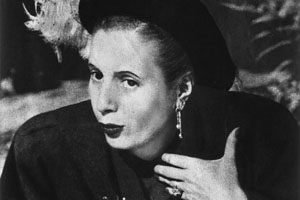After the Etruscan sovereigns were expelled the King’s role was fulfilled by two Consuls who could veto each other’s decisions. Both proposed laws and performed ritual sacrifices and the army was also under their domain.
However, in the case of war or of very serious external threats, a dictator was appointed. The dictator had absolute power, but once a crisis was overcome he was forced to step down without having held the position for more than 6 months.
All these institutions arose within the new order that began to take effect in Rome: The Republic. The state belonged to the people, not to certain elites or individuals, although it was directed by the nobility or Patricians.
Nobility versus Plebeians
Only the patricians, the descendants of the first Roman senators, had rights. They actively took part in State management and were owners of land and cattle. The chiefs of the gens (noble families) formed the Senate while the curiae (groups made up of 10 gens) gathered in their totality (30) formed the Curiate Assembly.
On the other hand, those who made up the plebeian class: those not belonging to the noble families, refugees, conquered peoples, artisans or peasants and others were not entitled to the right of citizenship, although they made up the majority of the population. Nor could they marry patricians and could only serve in the army if they were rich.
In 450 B.C., the law was codified. Previous to this it had been transmitted orally and was solely known by the patricians who had used it against the plebs.
The Plebeian struggle to gain rights continued during the Republic. As a result of this struggle, plebs were eventually able to marry patricians, and have their own representatives and advocates, called the tribunes of the Plebs, and in 366 B.C. a pleb became Consul.
Wars and the Peninsula
During the Republic, Rome expanded beyond the Latium region, conquering all of the Italian Peninsula. In order to do this, first the Veientines in 396 A.D., then the Gauls and Samnites, and finally the Greeks in 275 A.D. had to be defeated.
To consolidate its power, Rome established strategically located colonies, inhabited by Roman and Latin citizens. They were connected by a network of roads, one of which was the Via Appia.
In external affairs, Rome’s great enemy was Carthage, a Phoenician colony located in Tunisia in the north of Africa. Carthage was a great maritime power and its influence reached Sicily, Corsica, Sardinia and the south of Hispania (Spain).
The wars that took place between both nations between 264 and 241 B.C., 218 and 201 B.C. and 149 and 146 B.C. are known as the Punic Wars. In the first, Rome overcame its weaknesses in naval battles and Carthage had to surrender Sicily, Corsica and Sardinia, although it did conquer the south of Hispania. During the second war the Carthaginian general Hannibal reached the gates of Rome, having crossed all of Europe from Spain. Nevertheless, he was finally defeated by Scipio Africanus, «the African», in Zama, Northern Africa.
Carthage had to hand over its fleet, its Hispanic territories and pay a tribute for 50 years.
The third war was waged by Rome with the sole purpose of destroying Carthage, a goal it completely accomplished after three years of struggle.
The Republic Fades
Despite its external triumphs, Rome had serious internal social problems due to the accumulation of wealth by the ruling classes, the Nobiles or Optimates and the Equestrians or knights, after the aforementioned conquests. Furthermore the impoverishment of farmers, who had left their lands to fight in the wars intensified the tension existing between both parties.
The farmers had to sell their plots and move to Rome, with no other property than their prole, that is, their family, and were for this reason called proletarians. After years of fruitless attempts by pleb tribunes (such as Tiberius and Gaius Gracchus) to improve their constituents’ fate, a popular rebellion broke out and was crushed by Sulla, a member of the oligarchy. This was the class composed of the nobility and the wealthy.
Besides internal social unrest, Rome faced other problems, such as piracy and a slave rebellion, bringing great political instability. This allowed the army to grow in power and to form a Triumvirate to govern the republic in 60 B.C., this being made up of Pompey, Crassus and Julius Caesar. After Crassus’ death and Caesar’s conquests in Gaul (France), Germania (Germany) and a part of England (Londinium, modern London), a confrontation between the latter and Pompey, designated Consul by the senate, ensued. Caesar prevailed in the battle of Pharsalus in 48 B.C. and assumed power as dictator for life. Although his rule brought peace and an improvement in the situation of the lower classes, he was assassinated by a group of senators, led by Brutus and Cassius in 44 B.C.
A new Triumvirate, formed by Octavian, Caesar’s nephew and adoptive son, Lepidus and Marc Anthony, assumed power. When Marc Anthony married Cleopatra, the queen of Egypt, Octavian did not recognize his authority and defeated him in the Battle of Actium (31 B.C.) Lepidus stepped down and Octavian was left with total power over Rome, bringing the Republican era to an end.








 Muere Evita
Muere Evita